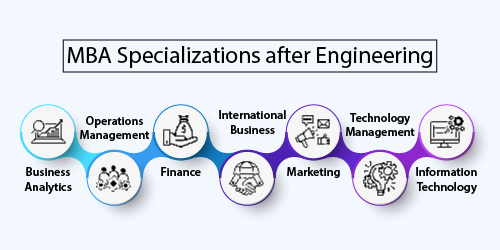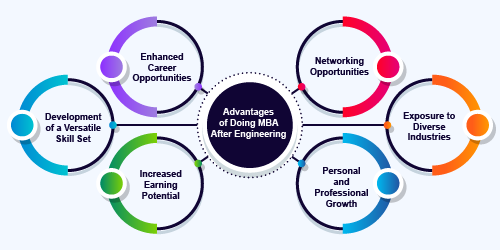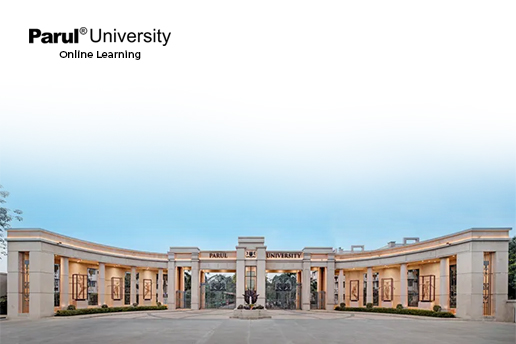MBA After Engineering: Right Choice for You or Not?
Table of Contents

If you’re an engineer wondering, “Can I do an MBA after engineering?” or “Is it even the right move?”, this blog has all the answers you need.
Thousands of professionals with technical degrees reach a point where they crave broader impact, strategic decision-making roles, or career pivots. An MBA can offer that shift, from problem-solving at the micro level to steering business direction.
But is it right for you? That depends on your career goals, timing, and industry aspirations.
So, let’s explore whether pursuing an MBA after engineering is a strategic pivot or simply a trend.
MBA After Engineering: Right Choice for You or Not?

Credit: globsyn.edu.in
- It’s likely right for you if:
- You feel capped in your current engineering growth path.
- You aspire to lead teams, manage products, or enter strategy/business roles.
- You want a pivot into industries like consulting, tech management, finance, or entrepreneurship.
- It might not be necessary right now if:
- You’re still building deep technical expertise or enjoy niche engineering roles.
- You already have business exposure through your current work.
- Your goals align more with specialization (e.g., M.Tech, Data Science MS).
Still unsure?
Scroll below. We’ve broken down all key insights about MBA after engineering, like career impact, real-world roles, and top programs.
Use of MBA After Engineering: Real Career Outcomes

Credit: globsyn.edu.in
Let’s break this into roles where an MBA after engineering combo has the highest impact:
1. Product Management
Here, engineers find a natural fit, thanks to their technical know-how. But an MBA adds customer insight, market positioning, and business logic. Product managers with both degrees are now the bridge between tech and business.
2. Management Consulting
Consulting firms appreciate analytical thinkers. Engineers bring structured thinking, and an MBA polishes that with frameworks, client empathy, and presentation skills. Many engineers at Bain, BCG, and McKinsey are MBA grads.
3. Operations & Supply Chain
Whether it’s a manufacturing plant or an e-commerce warehouse, the combination of engineering principles and management tools allows professionals to optimize cost, reduce delays, and increase throughput.
4. Entrepreneurship & Startups
As a founder, you might build the product, but scaling requires marketing, HR, finance, and partnerships. Engineering without business knowledge limits reach. That’s why many tech founders opt for MBAs after seed funding.
5. General Management & Leadership Roles
In roles like business strategy, corporate planning, and leadership development programs (LDPs), recruiters prefer candidates who understand numbers, teams, tech, and markets.
Career Switch or Career Acceleration? What an MBA Offers Engineers
For many engineers, pursuing an MBA isn’t just about changing careers; it’s about redefining the trajectory. Let’s break this into two clear possibilities:
1. Horizontal Shift – A New Domain, Same Foundations
Engineers who feel boxed into technical roles often look to switch domains. An MBA helps you pivot into:
- Marketing (Product Management, Growth Strategy)
- Finance (Investment Banking, Corporate Finance)
- Operations & Supply Chain (Manufacturing, Logistics, Procurement)
- Consulting (Strategy, Business Transformation)
These roles value analytical precision, something engineers bring in abundance. However, to break in, you need business fluency. That’s where an MBA becomes your translator.
2. Vertical Growth – Climbing the Managerial Ladder
On the other hand, those who enjoy their field but want to lead teams or own outcomes often pursue an MBA after engineering to grow within their industry.
For example:
- A civil engineer aiming to manage large infrastructure projects.
- A software developer transitioning into a Product Owner or Program Manager role.
- A mechanical engineer aspiring to lead manufacturing strategy.
In these paths, an MBA after engineering unlocks leadership roles that require financial, strategic, and cross-functional expertise.
MBA After Engineering Decision Tree: Should You Go for It?
If you’re still weighing the ‘use of MBA after engineering’ or caught in a loop of ‘what ifs,’ this quick decision tree below will help you cut through the noise and make a clear, practical choice
| Ask Yourself This | If YES → | If NO → |
|---|---|---|
| Are you more interested in leading teams and making decisions than building tech hands-on? | Go for an MBA. You're shifting from execution to strategic direction. | You may thrive deeper in tech—consider M.Tech, product roles, or startups. |
| Do you want to transition into roles like Product Manager, Consultant, or Strategy? | An MBA gives you the credibility and tools to pivot smoothly. | You may not need an MBA right now. Focus on domain depth or certifications. |
| Is your current growth stagnant despite strong performance? | An MBA can fast-track your trajectory to leadership or cross-functional roles. | Maybe explore internal mobility or lateral tech roles before an MBA. |
| Can you afford the time and financial investment over the next 1–2 years? | Proceed—with Jaro’s flexible, high-ROI programs tailored for working pros. | Consider part-time or executive options instead of a full-time MBA. |
| Are you motivated by business impact, scale, and multi-disciplinary work? | MBA aligns well with your mindset. | Stay in engineering or explore hybrid roles like Tech Lead/Product Owner. |
Pro Tip:
If 3 or more of your answers fall in the “YES” column, an MBA is likely the right move.
Less than 3? You might need more clarity or a different growth route.
How Jaro Education Supports Your Journey to an MBA After Engineering
Choosing the right MBA after engineering isn’t just about earning a degree; it’s about aligning your education with your ambitions. At Jaro Education, we understand that engineers think differently. That’s why our courses of MBA after engineering are handpicked and structured to meet both the analytical mindset of an engineer and the evolving demands of modern business roles.
We offer access to some of India’s most respected institutions, with globally recognized credentials, flexible learning models, and industry-focused specializations.
Explore our most sought-after programmes of MBA after engineering:
- Amity University Online MBA: One of India’s most in-demand online MBA programs, known for its global accreditations. It blends interactive live sessions with outcome-oriented learning, designed for career progression across industries.
- Dr. DY Patil Vidyapeeth Online MBA: Ideal for working professionals seeking management depth, this program brings together academic excellence and real-world learning. With a research-backed curriculum and UGC-approved structure, it helps learners fast-track their move into leadership roles.
- Manipal University Jaipur Online MBA: Combining flexibility and industry relevance, MUJ’s MBA offers a capstone-project-based approach with mentor support. Perfect for engineers who need a schedule-friendly yet impactful MBA program.
- Chandigarh University Online MBA: Tech-enabled, globally accredited, and forward-looking, this program emphasizes real-world case studies and strategic thinking. It’s a go-to option for professionals aiming to upskill in leadership and innovation.
Apart from courses, here is what sets Jaro apart:
- Unparalleled Career Guidance
- Dedicated Student Support
- Immersive, Lifelong Learning Ecosystem
- Talk to Experts Before You Decide
At Jaro Education, we don’t just deliver MBA programs; we help you transform your potential into leadership.
Visit our website to explore programs, or speak with an expert today to take the first step toward your MBA after engineering.
Conclusion
If you’re an engineer eyeing bigger problems, broader roles, or deeper business impact, an MBA isn’t just a pivot; it’s a multiplier. It bridges what you know with where you want to go.
Whether it’s product leadership, consulting, digital marketing, or even launching your own venture, the right MBA can unlock doors that tech skills alone can’t. And with Jaro Education, you gain access to globally recognized MBA programs curated for engineering minds, flexible, relevant, and built for scale.
So, if you’re still on the fence, ask yourself: are you ready to engineer your next big leap?
Frequently Asked Questions
Can I do an MBA after engineering without work experience?
Yes, you can do an MBA after engineering, even as a fresher. While some programs prefer experience, many top B-schools accept engineering grads directly. A clear goal and strong application matter more than years worked.
Is an MBA after engineering a good career move in 2025?
Absolutely. An MBA after engineering helps you shift from core technical roles to strategic, leadership, or cross-functional careers. In 2025’s hybrid tech-business market, it’s a future-ready move.
Which MBA specialization is best after engineering?
The best MBA after engineering depends on your interests. Popular options include Marketing, Business Analytics, Finance, and Operations. Align your choice with your career vision, not just trends.
How to get into an MBA after engineering with low grades?
If you’re wondering how to get into an MBA after engineering despite low grades, don’t worry. A strong entrance score and a compelling SOP can balance your profile.
What is the benefit of doing an MBA after engineering?
An MBA after engineering bridges the gap between technical skills and business acumen. It opens doors to leadership roles, product management, consulting, and more, especially for those aiming to move beyond pure tech.
Can I do an MBA after engineering without CAT or entrance exams?
Yes, many online and global MBA programs allow engineers to bypass entrance exams. So, if you’re wondering, “Can I do an MBA after engineering?” with a different route, Jaro Education is one of the options that makes it possible.

















